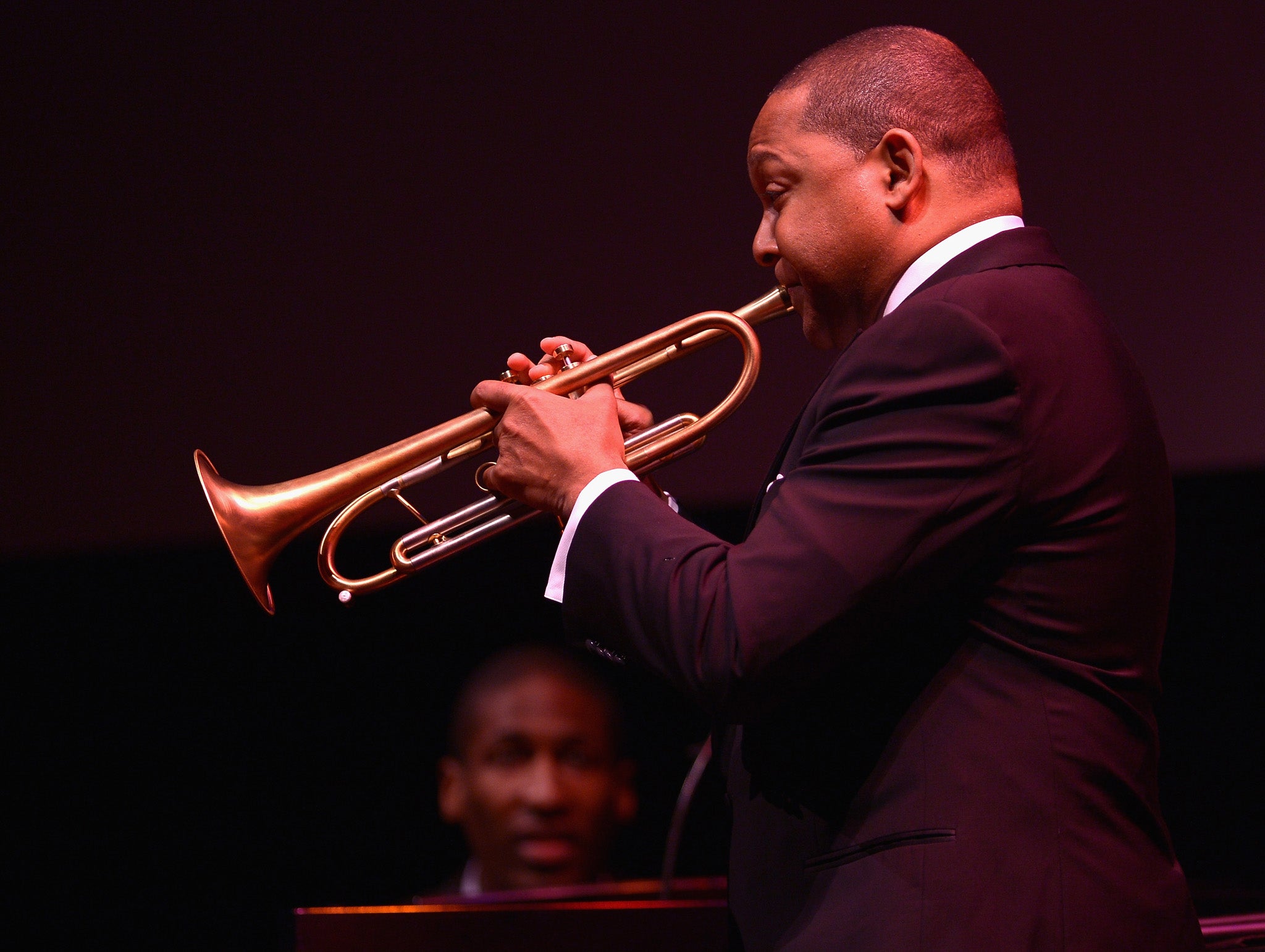Music review: Wynton Marsalis, Ronnie Scott’s, London

Wynton Marsalis is playing six almost instantly sold-out sets over three nights in London, one of them marking the Ronnie Scott’s club’s first venture into opera-style live streaming, to sate the massive imbalance between Marsalis supply and demand.
The 51-year-old trumpeter remains a controversial figure, for insisting jazz is what most people anyway assume it to be: swinging music rooted in Louis Armstrong’s New Orleans, its codification complete sometime around the release of John Coltrane’s A Love Supreme in 1964, after which an avant-garde decadence set in, till Marsalis’s 1980s arrival as an immaculately-suited saviour barely out of his teens. Vigorously promoting his views on TV, he limited and revived jazz, forcing it into the high culture citadel.
Dig under the ideological battle-lines, and Marsalis is a man working with tireless faith for and at his chosen music. The comfortably burly figure who steps from the wings with his quintet soon lists the composers they may get round to playing, from Jelly Roll Morton to Thelonius Monk. “We’re just going to go into their music,” he says in his disarming Southern drawl. “’Cause we like it.” That may be a disingenuous explanation of Marsalis’s wider impact on jazz. But on a bandstand, it’s all he needs.
The Cole Porter standard “What Is This Thing Called Love?” starts at a civilised smoulder, then is expanded with steady logic to show that a world can be found in a song. Morton’s “Tom Cat Blues” is spare, staccato swing, Marsalis finding mournful, antic and assertive tones in this 1920s tune, tempering nostalgia for its era by exploring its sophistication. Ornette Coleman’s “Ramblin’” follows, deliberately connecting the modern jazz titan to Morton’s primal verities. Saxophonist Walter Blanding pecks at then harries Coleman’s freer chords, and the double-act of this gently serious player with Marsalis runs through the set. Blanding’s solos fade like unfinished conversations.
The soft, intimate playing a club date allows is regularly exploited. And yet, when Marsalis visibly limbers up to blow harder on Monk’s “Green Chimneys”, the sense of almost raising a sweat is welcome.
The audience make way for the next house mid-evening, an economic calculation which allows Marsalis to be booked here, but which inevitably makes the gig feel sawn off. Elevating intensity wasn’t on his seriously playful, studiously intent band’s agenda, but you could get addicted to following their thoughts.
Subscribe to Independent Premium to bookmark this article
Want to bookmark your favourite articles and stories to read or reference later? Start your Independent Premium subscription today.

Join our commenting forum
Join thought-provoking conversations, follow other Independent readers and see their replies